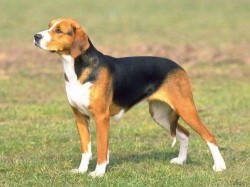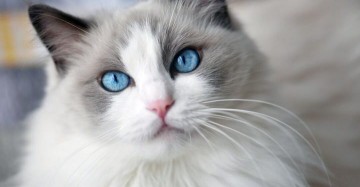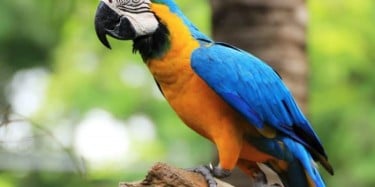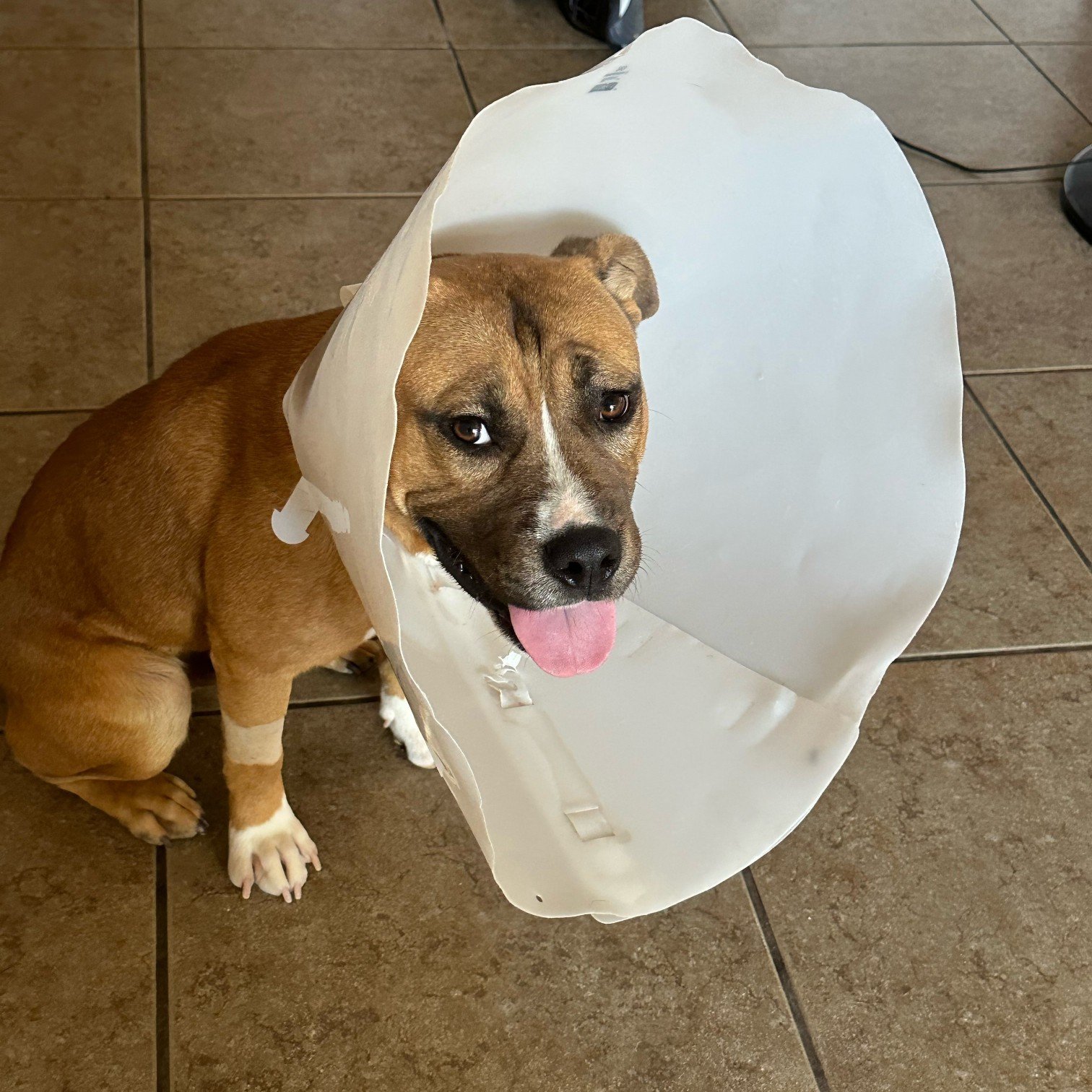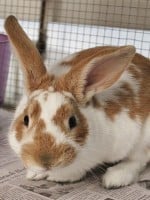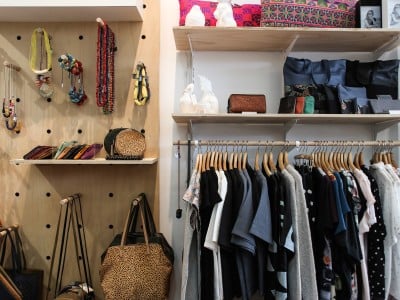Puppies love to play. They just can’t get enough of having a good time. Although you may think it’s adorable to see your puppy nibble at your clothes, it teaches them bad play behavior. This can lead your puppy to continue his mouthiness as he grows and cause a bigger problem.
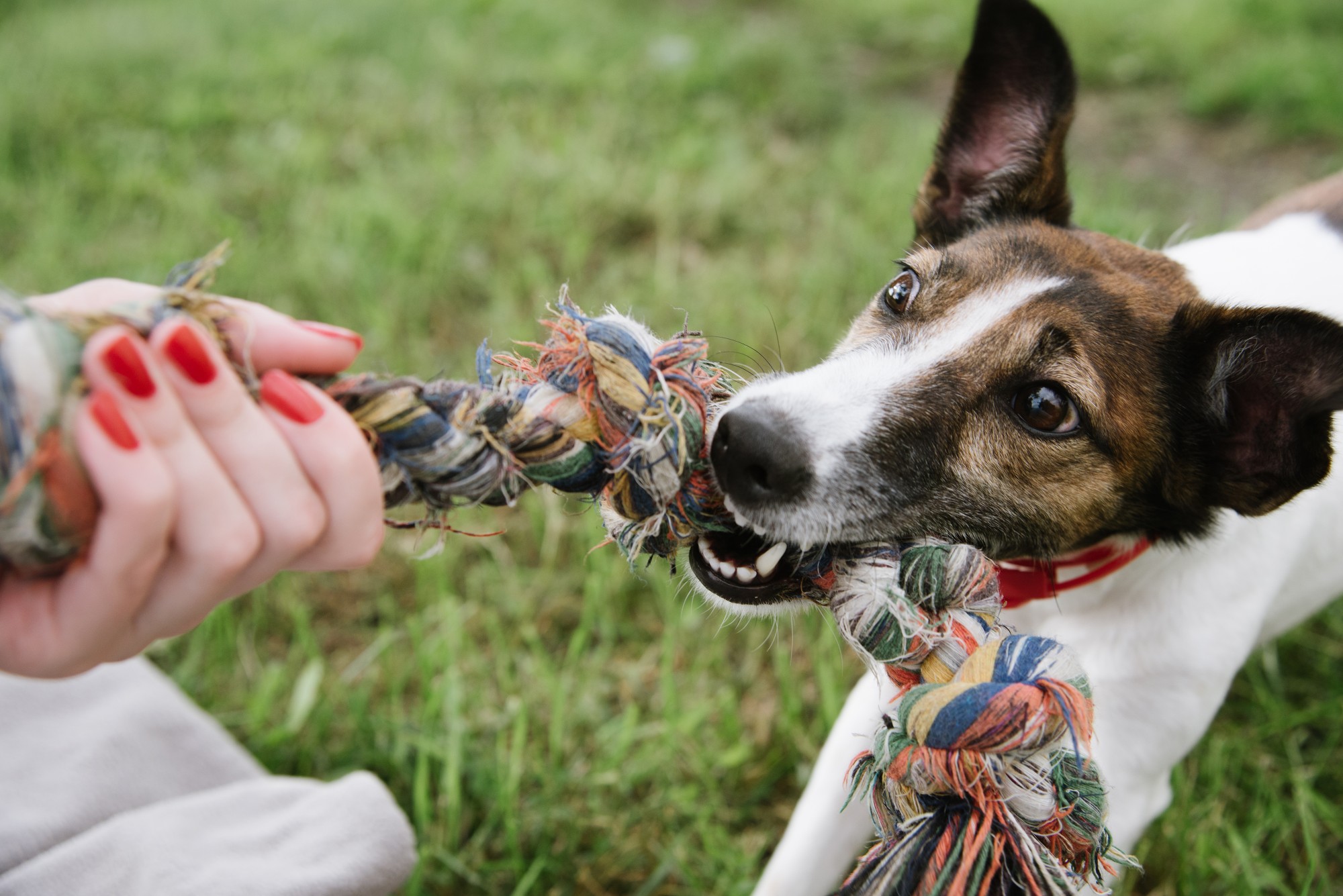 Why is it important to discourage mouthing and biting?
Why is it important to discourage mouthing and biting?
Puppies learn bite inhibition during playtime with other dogs or people. This means they learn to be careful with the amount of bite pressure they use when playing. Puppies realize that if they bite too hard, their friends will not want to play. We have some tips on how to train a puppy to play nice.
Play like a human.
Everything is a game to puppies. Chase and be chased, pounce and grab – that’s how all puppies play! When playing with your puppy, you want to teach them early on that you are not a dog. Don’t get on all fours and play like your puppy. This will lead them to develop bad habits when they meet other people.
Teach your puppy his limits.
When your puppy bites at your skin, clothes or shoes, yell “OW!’ and act hurt. End the play session by turning your back to him or walking away. Eventually, he will learn that mouthing and biting too hard means the end of playtime. Another option is replacement training. When he attempts to bite at your hand or clothes, give him a chew toy. This helps your puppy learn the appropriate items in the house to chew on. As your puppy grows, you can play them using cues or objects to show it's time to play. For instance, you could put on gardening gloves to play with your pup and when you remove them the pup knows play time is over.
Be a good leader.
Puppyhood helps determine the behavior of an adult dog. During this time, puppies will naturally look to you for structure or a routine. This means you need to be consistent when learning how to train your puppy – especially with mouthing. Now is the critical time where you can set boundaries and expectations to help your puppy to grow.
